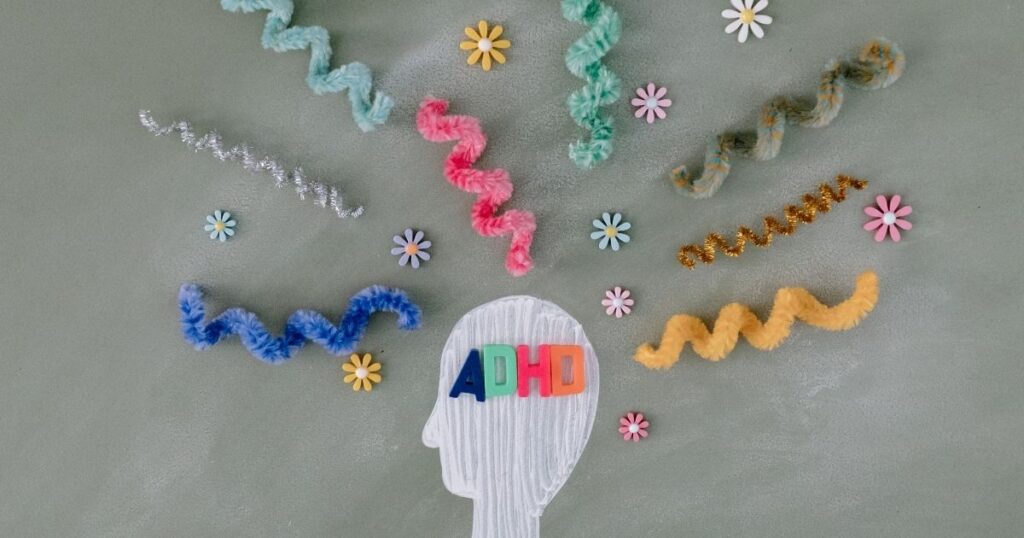What is ADHD?
Attention Deficit Hyperactivity Disorder (ADHD) is a neurodevelopmental disorder that affects both children and adults. It is characterized by difficulty in paying attention, impulsivity, and hyperactivity. People with ADHD often struggle with organization, time management, Therapeutic Treatment, and maintaining focus, which can significantly impact their daily lives.

ADHD is a complex condition that can manifest differently in individuals. Some may experience primarily inattentive symptoms, while others may exhibit more hyperactive and impulsive behaviors. Regardless of the specific symptoms, ADHD can have a profound impact on academic performance, work productivity, and personal relationships.
The Challenges of Managing ADHD
Managing ADHD can be a significant challenge for individuals and their families. The symptoms of ADHD can disrupt daily routines, hinder academic progress, and strain relationships. Many individuals with ADHD struggle with time management, organization, and completing tasks, leading to a sense of frustration and underachievement.
Moreover, the impulsivity and hyperactivity associated with ADHD can make it difficult for individuals to control their behaviors. This can result in impulsive decision-making, difficulty following instructions, and engaging in risky behaviors. The challenges of managing ADHD can lead to feelings of low self-esteem, anxiety, and depression.
Therapeutic Treatment Options for ADHD
Therapeutic treatment plays a crucial role in managing ADHD symptoms and improving the quality of life for individuals diagnosed with the disorder. While medication management is often a primary treatment approach, therapeutic interventions complement medication and address the underlying issues associated with ADHD. Some of the most effective therapeutic treatments for ADHD include Cognitive Behavioral Therapy (CBT), medication management, alternative therapies, and lifestyle changes.
Cognitive Behavioral Therapy (CBT) for ADHD
Cognitive Behavioral Therapy (CBT) is a widely recognized therapeutic approach for individuals with ADHD. CBT aims to identify and change negative patterns of thinking and behavior. It helps individuals develop effective coping strategies, improve time management skills, and enhance organizational abilities.
CBT for ADHD focuses on teaching individuals skills to manage impulsivity, increase attention span, and improve problem-solving abilities. It also helps individuals develop self-monitoring techniques and promotes self-awareness. Through CBT, individuals with ADHD can gain a better understanding of their condition and develop strategies to overcome the challenges they face.
Medication Management for ADHD
Medication management is often an essential component of ADHD treatment. Stimulant medications, such as methylphenidate and amphetamines, are commonly prescribed to manage ADHD symptoms. These medications work by increasing dopamine levels in the brain, which helps improve attention and focus.
Non-stimulant medications, such as atomoxetine and guanfacine, may also be prescribed for individuals who do not respond well to stimulant medications or have certain medical conditions. These medications have different mechanisms of action but aim to improve focus and reduce impulsivity.
It is important to note that medication management should be done under the supervision of a qualified healthcare professional. The dosage and type of medication prescribed may vary depending on the individual’s specific needs and response to treatment.
Alternative Therapies for ADHD
In addition to traditional therapeutic approaches, alternative therapies can also be beneficial in managing ADHD symptoms. Some individuals find relief through practices such as mindfulness meditation, yoga, and neurofeedback. These therapies focus on improving self-awareness, reducing stress, and enhancing attention and self-regulation skills.
While alternative therapies may not be as extensively researched as traditional treatments, many individuals with ADHD report positive outcomes. It is always advisable to consult with a healthcare professional before incorporating alternative therapies into an ADHD treatment plan.
Lifestyle Changes to Manage ADHD
Alongside therapeutic interventions, making lifestyle changes can significantly aid in managing ADHD symptoms. Establishing a structured routine, setting realistic goals, and creating an organized environment can help individuals with ADHD stay focused and on track. Regular exercise and a healthy diet can also have a positive impact on ADHD symptoms by promoting overall well-being and reducing restlessness.
Additionally, getting enough sleep and practicing good sleep hygiene can improve attention and reduce impulsivity. Limiting screen time and creating a quiet, distraction-free space for studying or working can also enhance focus and productivity.
Finding Balance: Combining Therapeutic Treatment with Other Strategies
Managing ADHD often requires a multifaceted approach. While therapeutic treatment is essential, combining it with other strategies can help individuals find balance and achieve optimal outcomes. It is crucial to work closely with healthcare professionals, therapists, and educators to develop a comprehensive treatment plan that addresses the individual’s specific needs.
Incorporating strategies such as using assistive technologies, implementing organizational tools, and seeking support from family and friends can further enhance the effectiveness of therapeutic treatment. It is important to remember that finding balance is a journey, and what works for one individual may not work for another. Through trial and error, individuals with ADHD can discover the combination of strategies that works best for them.
Support Systems for Individuals with ADHD
Having a strong support system is instrumental in managing ADHD. Family members, friends, and educators can provide understanding, encouragement, and practical assistance. Support groups and online communities can also be valuable resources for individuals with ADHD, as they provide a platform for sharing experiences, strategies, and coping mechanisms.
Furthermore, individuals with ADHD can benefit from seeking professional support from psychologists, psychiatrists, and therapists specializing in ADHD. These professionals can provide guidance, monitor progress, and make adjustments to the treatment plan as needed.
Conclusion
Managing ADHD is a complex endeavor that requires a comprehensive approach. Therapeutic treatment, including Cognitive Behavioral Therapy and medication management, plays a vital role in addressing the underlying issues associated with ADHD. Alternative therapies, lifestyle changes, and support systems further enhance the effectiveness of treatment.
By combining therapeutic interventions with other strategies, individuals with ADHD can find balance, improve their daily functioning, and lead fulfilling lives. It is essential to work closely with healthcare professionals, develop a personalized treatment plan, and have a strong support system in place. With the right combination of approaches, individuals with ADHD can effectively manage their symptoms and thrive.

